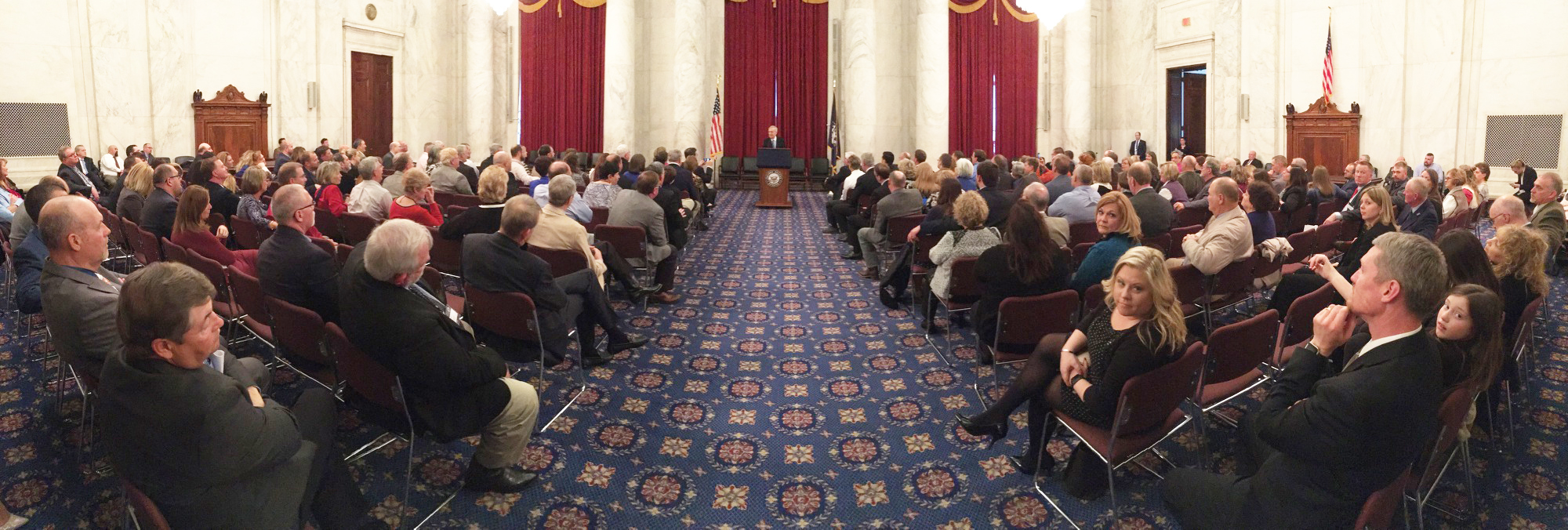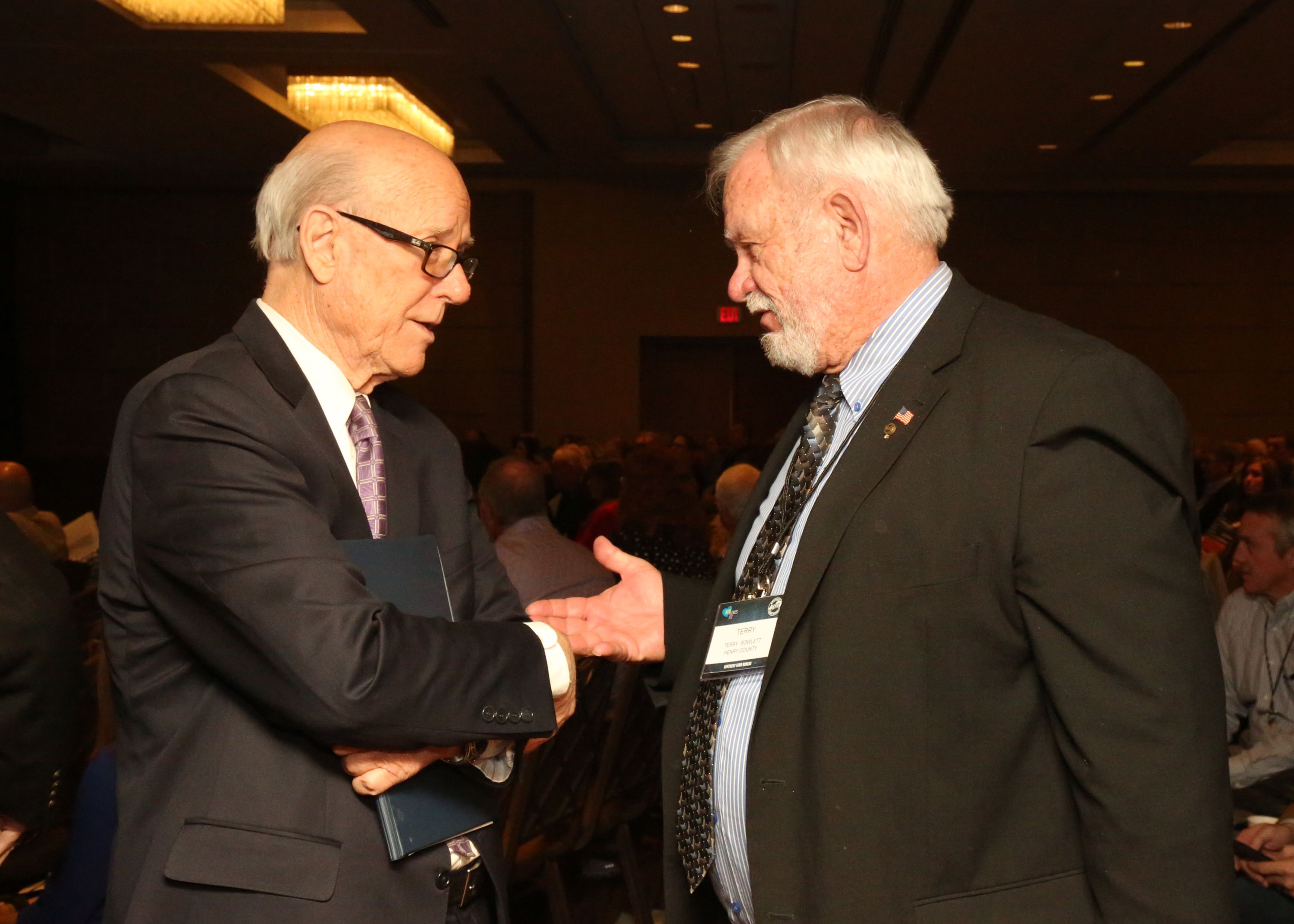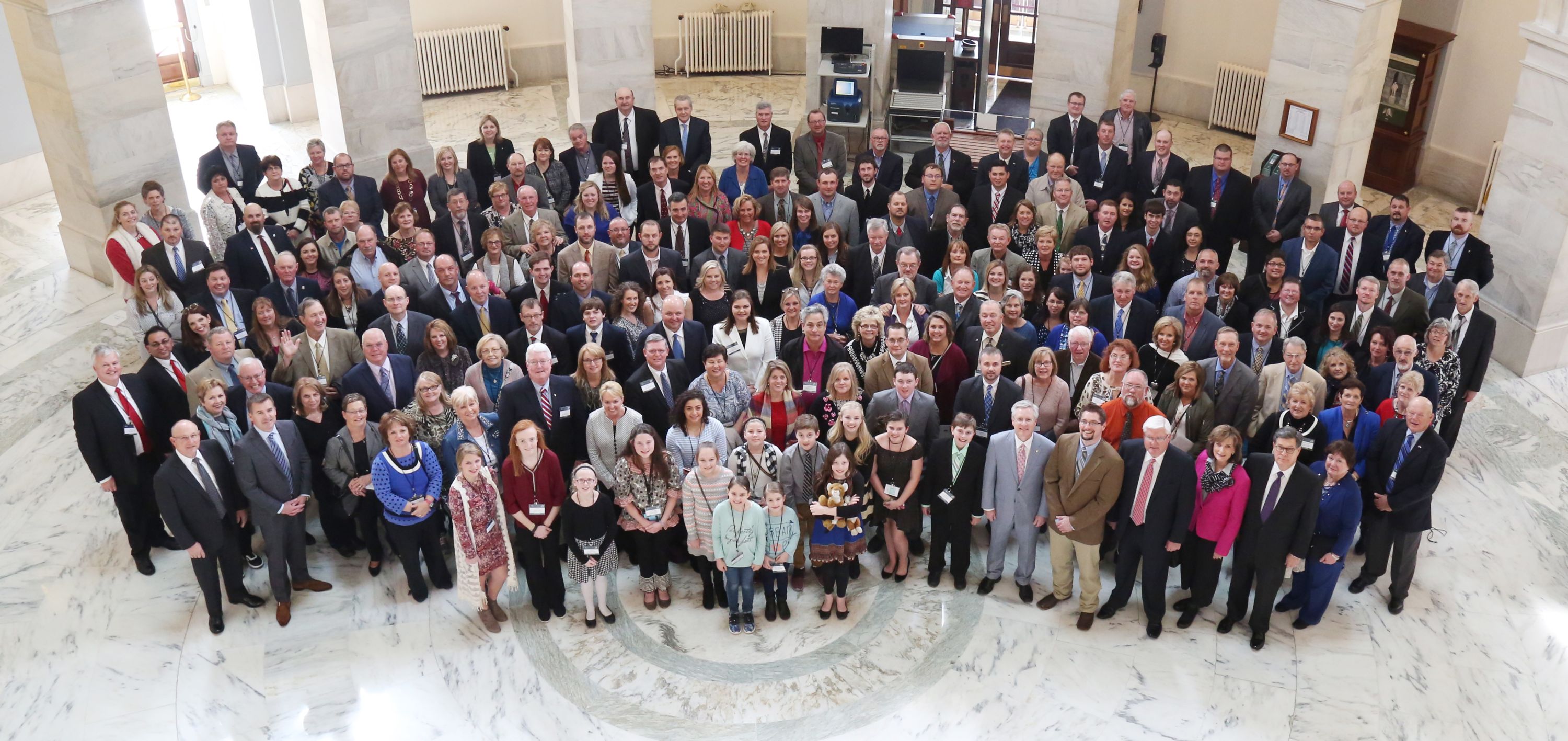KFB 2017 Congressional Tour: An annual tradition continues
Posted on Mar 6, 2017Each year, Kentucky Farm Bureau (KFB) members make their way to Washington, D.C. to meet with federal legislators, hear from American Farm Bureau Federation (AFBF) policy experts and show their support for agriculture during the annual Congressional Tour.
This year, nearly 300 members made the trip to Washington, D.C. to continue the organization’s grassroots policy development process and present their 2017 national priority issues to the Kentucky federal legislative delegation.

Congressional Tour attendees met with legislative leaders to discuss these priorities set forth during KFB’s annual meeting held last December and to hear about issues concerning agriculture and rural communities from each member.
KFB President Mark Haney said coming to Washington demonstrates how important advocacy is to members and farm families in general.
“It has always been important to have our voices heard at the local, state and national levels when it comes to farm policy. But now more than ever, we need to let our lawmakers know what the issues are on our family farms,” he said. “We have seen volatile commodity markets, lower net farm income and regulatory initiatives that have all placed burdens on our operations. Coming to Washington with the number of members we have, it makes a statement that Kentucky agriculture is ready to engage with our Congressional delegation in finding ways to strengthen our industry not only for us but the generations to follow.”
.jpg)
County leaders were first briefed on the current political environment in Washington by the staff of KFB and American Farm Bureau Federation including information about national farm policy and issues affecting them directly.
Dale Moore, AFBF Executive Director, Public Policy led a discussion on current issues surrounding agriculture. He also talked about the importance of letting lawmakers know what farm families face each day in their farming operations, especially as discussions of a new Farm Bill begin to take place.
“We have a lot of leadership we can count on as we move forward in this Farm Bill process which has kicked off,” said Moore. “One of the responsibilities that you will have is to let these members know, when you’re visiting with them, what is important to you and the issues you are dealing with.”
Moore added that Kentucky Farm Bureau has a strong voice on matters he takes to the Hill.
“It’s one of the opportunities we have in this great country we live in, to be a part of the process and you all are definitely a part of the process,” he said. “You tell us what we need to be doing on your behalf and you also tell the men and women on the Hill what they need to be doing on your behalf, as well.”
This year, Kansas Senator Pat Roberts, Chair of the Senate Agriculture Committee also addressed the group. He thanked members for being involved and said he is proud to be a champion for all of agriculture.

“In this Congress we are going to be writing a new Farm Bill, a bill that considers the needs of growers and producers all across the country who are facing some tough economic times,” said Roberts. “It’s going to be tough but I promise you we will get a Farm Bill. Our plan is to listen to the needs and suggestions of producers and stakeholders. Then and then only, we will produce a bill that will get through the Senate and the House and to the President’s desk by the end of next year.”
Roberts also told members that as they develop polices and priorities, to think about the mission of the existing Farm Bill programs.
“What’s working and what isn’t and I encourage you to think broadly about all of the challenges facing all of agriculture,” he said.
In addition to KFB members meeting with their respective representatives to discuss priority issues, they also made their way to Capitol Hill to visit with and hear from Kentucky’s two U.S. Senators, Majority Leader Mitch McConnell and Rand Paul. This annual meeting allows KFB leadership to officially present the Senators with copies of the current KFB Policy book.
Both Senators addressed a number of issues including tax reform, health care, regulatory reform and trade, as well as immigration.

“I’m a supporter of the H2A program. I’m not one of those who believes that there are Americans who are just dying to do your tobacco work for you,” said McConnell. “I think we need these guest worker programs; that is of course legal guest workers. I think we ought to make them more user friendly.”
Paul agreed with McConnell in his support of guest worker programs and spoke of legislation he has introduced that would streamline the application process for H2A employers and make it, among other things, easier for farmers to get workers who had been with them for a number of years.
“It would allow for people to come for multiple years and if you have someone who has been coming for five years (for instance), you just fill out two lines in (a request) and the government has to respond within a certain amount of days,” he said.
Waiting to greet McConnell and Paul before they met with the entire group were the 2017 Outstanding Farm Bureau Youth’s (OFBY) Randa Morris, of Garrard County and Jacob Patterson, of Pulaski County.

It has become a tradition for the OFBY winners to make this trip to the Capitol. This year Morris and Patterson supplied photos of their trip for KFB on social media, to serve as a documentary of sorts showcasing their activities during their visit.
Both agreed that it’s important for people their age to be involved in national farm policy and social media is a way to share and learn.
“The more we are involved now, the more we will be in the future and better able to make the best decisions,” said Morris. “I get a lot of news from social media and I think it’s because we have grown up with it. It’s a great tool when used in the right way; it’s natural to us and we can promote ourselves and what we do.”
Morris added that in using social media, many falsehoods about agriculture can be corrected and the good things can be shared with others.
Patterson said while he has never been a huge user of social media, he sees the value it has in staying informed and sharing information.
“I always follow many agriculture organizations and FFA, and having that constant feed of news and what might be happening across the nation has helped me immensely in staying updated on our industry,” he said.
Patterson added that he thinks currently and in the future, agriculture will remain one of if not the most important industry in the world.
When asked about government’s role when it comes to the ag industry, both students agreed there needed a continued interest between the two but with perhaps one caveat.
“Feeding the world in the future is going to be one of our country’s biggest challenges and if we can keep legislators backing us, there’s no limit on what the industry can do in meeting those demands,” said Patterson. “The American farmer can meet any challenge but the government has to allow them to do it.”

Morris said while lawmakers plays a big role in helping the ag industry, less is often more.
“We need assistance from the government at times, like passage of a solid Farm Bill, but our farmers also need the freedom to do what they do best,” she said. “We need the government to help them, not hinder them.”
Comments